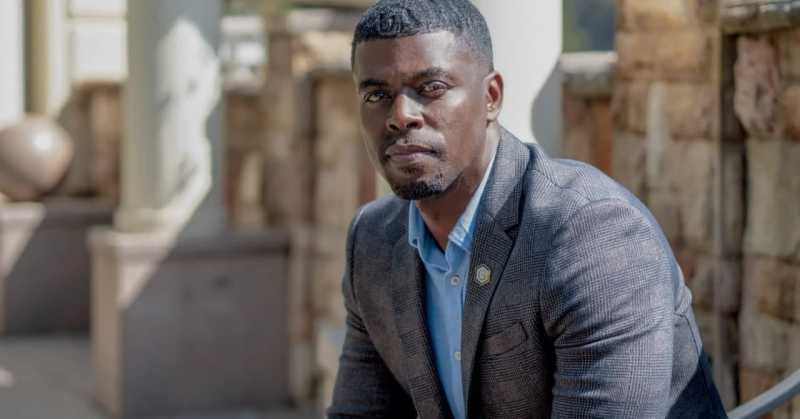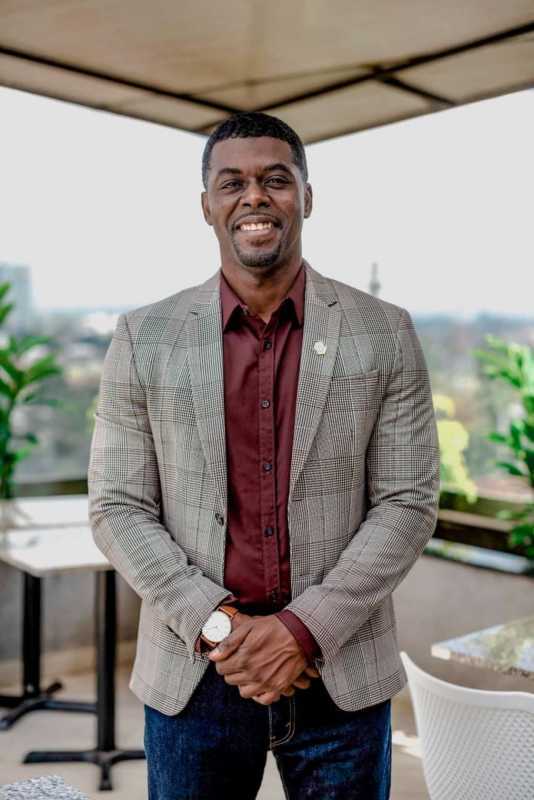Amadou Daffe: An Exclusive Interview with Loline Mag [Part 2]

This is the second part of the interview with Amadou Daffe, CEO and Co-founder of Gebeya. In the previous part, we talked about his background and the start of Coders4Africa. In this article, we will talk about how Gebeya started its journey and Amadou's advice for young Ethiopian entrepreneurs.
Before it was called Gebeya, it was called DAAS, developer as a service. Amadou went back to the US and wanted to raise money for his startup DAAS. He was hesitating about whether to choose Ethiopia or Kenya to launch the startup. In one of his trips to San Francisco to raise money for his startup, he met up with his friend Hiruy Amanuel, the soon-to-be co-founder. Amadou didn't know Hiruy Amanuel was Ethiopian at first when he told him he was thinking of opening a company there. Amadou explained to Hiruy, "We need to use Ethiopia as our ground to build a pan-African company." After listening to his plan, Hiruy told Amadou that he wanted to go in with him and wanted to invest. Then they agreed to come up with a different name for their company. They decided to pick a very easy to say, meaningful but yet prolific name for our startup. They used Google to translate the term marketplace in Amharic. That is how Gebeya.com was born. They bought the domain and trademarked it, then moved to Ethiopia to start the company.
Both Amadou and Hiruy are US citizens; for this reason, based on the law of the Ethiopian government at that time, foreigners had to make $200,000 worth of investment to start a company. Regarding the government's way of doing things, Amadou said, "The government enforcing this is very bad but at the same time good. It is good in the sense that you will have a working capital to run." The process of setting up their startup took them more than six months because of the number of business licenses needed to set the company. Amadou recalls, "Just in case it didn't work out, in parallel, we also created Gebeya in Kenya." The first year and half of the business, they invested almost half a million dollars.
"One of the biggest challenges was the training.", Amadou remembers, "Gebeya is trying to be the UpWork of Africa. But to be like UpWork, you need to have good freelancers. To have good freelancers, you need to recruit them, and they have to be the best." When Amadou came to Ethiopia, they didn't find many skilled people suitable for a freelance marketplace. Hence, to identify the best, they created a training program. This program acted as a pipeline that allowed them to have a freelance marketplace.
Talking about the challenges they faced, Amadou stated, "The other biggest challenge was making sure people understand what we were doing. If they did, thousands of people right now could have remote jobs working from Ethiopia."
We asked Amadou about Freelancing in Ethiopia and the whole of Africa. He responded, "The Ethiopian government said they planned to create 15 Million Jobs in the next ten years. Perhaps, it could be achieved in manufacturing if the Chinese came and built many manufacturing factories. But the living wages won't be good. However, if we can leverage the freelance or gig economy, that will be a game-changer."
Amadou proceeded, "Let me give you an example. The concept of the gig economy has already been proven in Ethiopia quite successfully. In just three years, the company Ride has onboarded 50,000 drivers on her platform, with drivers making on average about 1,000 birr a day. This is called the gig economy. Samrawit Fikru, the CEO of Ride, is the fastest job creator in the country. Imagine now you have 50,000 software developers in Ethiopia making 45,000 birr per month; it will be fifty million dollars you bring to this country."
Amadou continued, "Now imagine, every other country replicates the same thing. Say, a million talents in Africa make $100 a day; this will be one hundred million dollars a day. The current population of Africa is one and a half billion people. Our imagination can go wild!"

We asked Amadou what advice he had for the Ethiopian entrepreneurs. He responded, "You need to have a broader way of thinking and have a problem-solver mentality. Find the problem you could solve in Ethiopia, but think how big it can get. Also, don't get caught up in your reality. Let me give you an example. I was invited to a conference to speak about Job Seeking and employability skills. Then one of the audience members said, 'I want to start my own company, but I also want to have a job at the same time to survive.' He wanted to do two things. A true entrepreneur will follow one path which is driven by his or her passion.
"As an entrepreneur, the first thing you have to do is build your Why,"
Amadou continues, "Why are you doing what you're doing? The Why is crucial. If the Why doesn't impact people's life or is not big enough to help the country, forget it. Why did I build Gebeya? I started Gebeya because I was tired of Africa not being looked at competitively in the global context. My Why is, I wanted Africa to be competitive. My Why is so strong that it has become part of me.
"The other thing you need to do is, learn how to fail fast and learn from your failures and keep moving." Amadou continues, "In most African cultures, and Ethiopia is no different, failure is a shame. If you fail, your parents, friends, and people will pity you. The US has so many successful and daring entrepreneurs partly because they are allowed to fail.
"After you get your Why, the next step is the execution," Amadou indicates. "The execution will determine if your customers, employees, and your future investor will follow you in your journey. They need to know, 'can this person take this company to where he or she says they want to take it?' Are you committed enough? If you have a second job, you're not, and investors won't give you any money because the perception will be, you are not focused enough. I tell the entrepreneurs, 'if you have a place to stay for free, like your parent's house, and if you have food and money for transport, you can build a startup.' I often suggest to wannabe entrepreneurs, 'work for a company for a while and see how you like it. And if it does not feel right, and if you have a strong Why, quit the job and start your own company.' I did that. I left my job about eight years ago. I told my boss that I was quitting and moving back to Africa; he laughed at me; because I made so much money there. But my Why was so consuming me. I was no longer happy working for someone else's why. Instead of complaining about Africa, as most diasporas do, I want to have my boots on the ground and see what I can do. If I had left without doing something to help Africa be more competitive, I would have failed my life. And my kids and their kids' kids would be quite disappointed again by our generation."
